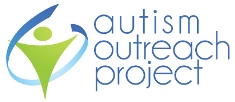Autism Awareness Month may be winding down, but the Autism Outreach Project (AOP) work continues to grow.
AOP is a State Needs Project through the Office of Superintendent of Public Instruction, in collaboration with the Early Support for Infants and Toddlers program in the Department of Early Learning and NWESD.
Their mission is to provide information, training, and technical assistance to schools, families, and agencies with educational supports for individuals from birth to age 21 with autism spectrum disorder.
The AOP does not endorse any single method or intervention, but strives to provide information on a variety of evidence-based practices to meet the specific needs of individuals with autism.

AOP provides the following services to Washington State schools, families, and agencies:
Information
Educational intervention, early intervention/screening, current research, school/home collaboration
Referral
Support groups, associations and agencies, autism consultants, diagnostic centers
Training
Local, regional, and statewide workshops, Combined Summer Institute, video conference training
Special Events
Information on autism conferences and special presentations statewide.
Lending Library
Reference materials available for loan, including books, videos, and DVDs.
Resources
Brochure and resource guide available for download.
Technical Assistance
Individual consultation to schools and families, referral and coordination with autism specialists, and collaboration with agencies supporting children with autism spectrum disorder.
Autism Links
Comprehensive resource for information on autism.
To learn more, contact the Autism Outreach Project at toll-free at 1-888-704-9633 or email to autism@nwesd.org.
Source: Autism Outreach Project


